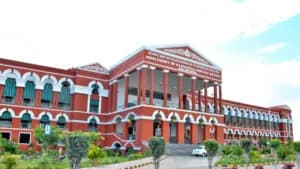Sitting in a packed courtroom on Tuesday, the Supreme Court reopened the debate on whether India’s environmental laws permit ex-post facto environmental clearances - a question that could decide the fate of airports, steel plants, residential towers, and even a 962-bed AIIMS facility already nearing completion.
The Bench, led by the Chief Justice, heard a review petition filed by the Confederation of Real Estate Developers of India (CREDAI) seeking recall of its earlier May 2025 judgment (popularly referred to as JUR), which had struck down the 2017 Notification and the 2021 Office Memorandum that allowed post-construction environmental approvals.
The atmosphere was unusually tense, almost electric, with counsels pointing to multi-crore public projects at risk of demolition.
Background
The dispute stems from the Court’s May 2025 ruling holding that ex-post facto environmental clearances-essentially clearances granted after a project has begun or even completed-are illegal under India’s environmental framework.
That judgment threw thousands of projects into uncertainty.
CREDAI, the Union of India, and several states rushed to the Court for review, arguing that entire statutory frameworks, including the 2017 Notification and the 2021 SOP on handling violation cases, were ignored.
Senior advocate Mukul Rohatgi painted a stark picture:
“Imagine completing an airport, only to be told it must be demolished and rebuilt just to satisfy a procedural lapse. This is not environmental protection; this is absurdity,” he submitted.
The Solicitor General added that even critical health infrastructure was at stake - such as the AIIMS Odisha building, construction complete, but awaiting final EC.
Court’s Observations
From the very beginning, the Bench signaled that it was fully aware of the high stakes. The Chief Justice remarked at one point,
“The earlier judgment may have overlooked the full context. Environmental protection cannot mean shutting down projects that are otherwise sustainable. The law must be applied with proportionality.”
Counsel supporting the review emphasized that crucial precedents - including D. Swamy (2023) and Pahwa Plastics (2023) - had not been cited earlier. These judgments had clearly affirmed that ex-post facto ECs were not prohibited under the Environment Protection Act and may be granted in exceptional situations.
The Bench appeared receptive, noting that multiple two-judge decisions had upheld similar relaxations. “Judicial discipline requires consistency,” the Chief Justice observed, hinting that the earlier ruling may conflict with a line of established precedent.
Read Also:- Bombay High Court Refuses to Quash CBI IPO Scam Cases Against Broker Manoj Seksaria Despite SEBI Consent Settlement of 2009
Environmental groups, however, strongly opposed the review. Senior advocates Anand Grover and Sanjay Parikh warned that allowing such clearances would incentivize illegal construction.
“A party cannot take benefit from its own wrong,” they argued, stressing that demolitions are necessary where developers wilfully violated the law.
Yet the Bench seemed unconvinced by an absolutist approach. Referring to the immense public impact, the CJI noted,
“Stopping a running steel plant or razing a completed hospital due to a technical irregularity - is that truly the remedy the law intends?”
Read Also:- Delhi High Court Upholds Family Court Order Granting Custody to Mother, Says Welfare of
Decision
After lengthy arguments, the Court reserved its final order, but made one point unmistakably clear: the review petition is maintainable, and the earlier judgment requires reconsideration.
The hearing ended with the Bench stating that the final decision would address the legality of the 2017 Notification and the 2021 SOP afresh, keeping in mind proportionality, economic impact, and environmental safeguards.
The matter now stands reserved for judgment.
Case Title: CREDAI Review Petition on Ex-Post Facto Environmental Clearances
Court: Supreme Court of India
Matter: Review Petition (Civil) in Diary No. 41929 of 2025
Arising From: Writ Petition (Civil) No. 1394 of 2023
Petitioner: Confederation of Real Estate Developers of India (CREDAI)
Respondents: Vanashakti & Another















